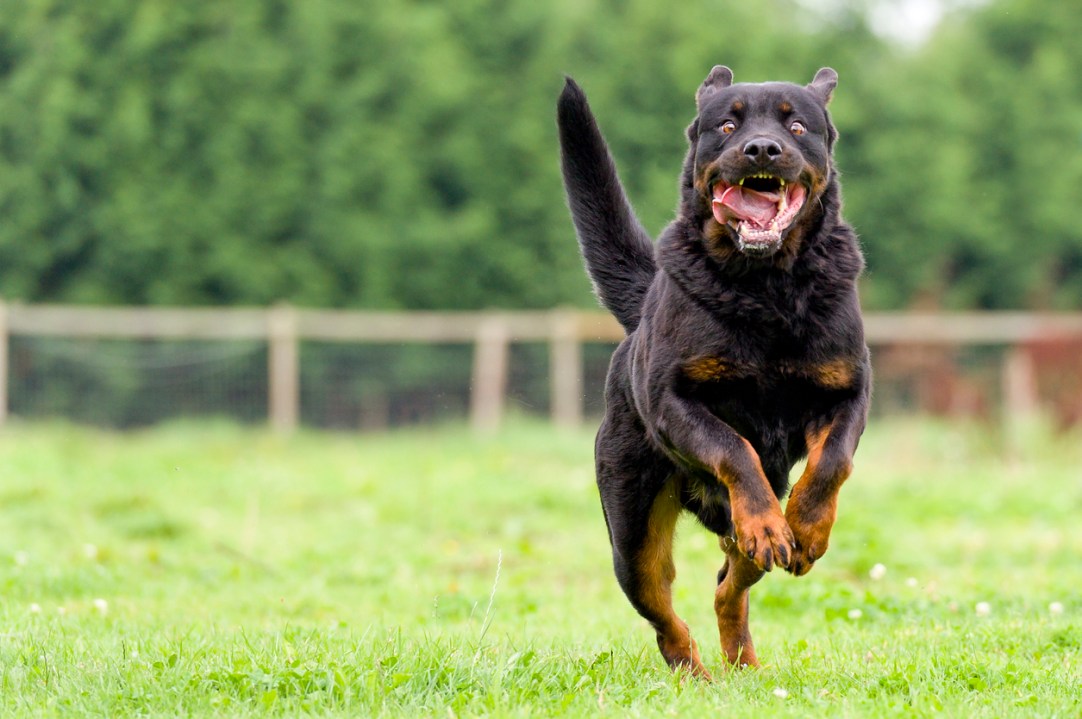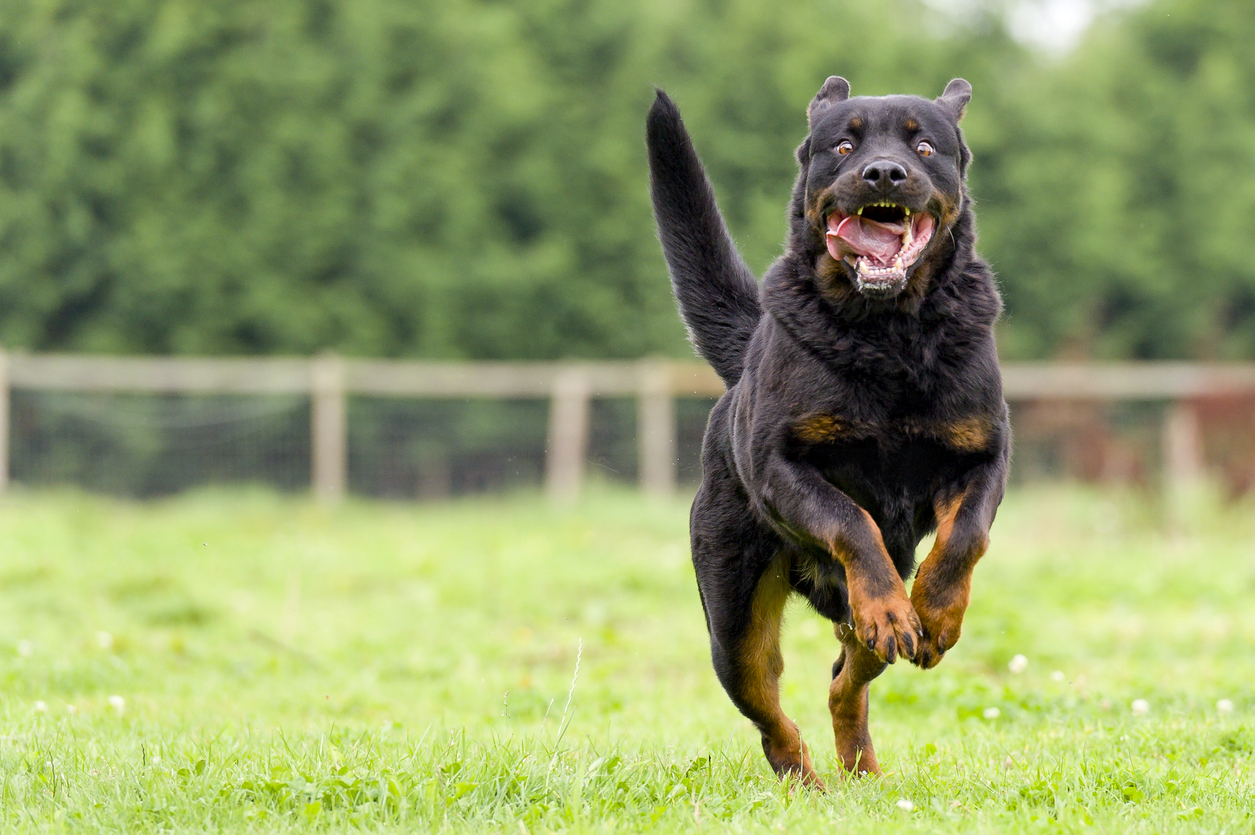Love of dogs is hardly new in Britain. There is a growing strand of research exploring the shared history we have with our canine pets. There is some lovely work on Victorian pet cemeteries and dog breeding, while an excellent little series by Kathleen Walker-Meikle includes the indispensable Dogs in Medieval Manuscripts, which chronicles the prominent if exotic space in the imagination held by our furry friends a millennium ago.
But if domestic animals had an obvious role in the private lives of our ancestors beyond being cute and fond furry friends – cats as mousers, dogs to scare baddies off, chase after sheep and keep other rogue animals in line – today the relationship has taken on a more sentimental, claustrophobic and frankly troubling turn.
When it comes to pets, we have truly lost the plot
On Tuesday a four-year-old was killed in a dog attack in Milton Keynes. Meanwhile, an inquest this week heard how Natasha Johnston, 28, a dog walker in Surrey, died after ‘multiple penetrating dog bites to the neck’, with her jugular vein pierced. Surrey police said last week that it would not be prosecuting anyone. And in a further grotesque twist, it sounded as if the council was blaming Ms Johnston for what happened, pointing out that she was not licensed by the local authority to dog walk in the area where the attack – or crime, really – occurred. Tandridge District Council said: ‘Commercial operators wishing to provide dog walking services must be licensed and businesses providing animal services, like boarding, kennels and catteries can walk dogs in the district under the terms of their licences’. Imagine being the bod in charge of that statement.
The thing is, whether Ms Johnston was or was not licensed as a dog walker in Tandridge has little to do with the fact that she was mauled to death by domestic pet dogs. The number of these attacks has been sharply rising over the past 20 years. In the decade preceding the 1991 Dangerous Dogs act, 15 people were killed by canines, according to the Office for National Statistics. Between 2012 and 2022 that number more than doubled to 32. The rocketing number of injuries is perhaps even more sobering: in 2018, 8,389 people were hospitalised from dog attacks, up from 3,395 in 2002.
This phenomenon has been attributed to more than numbers alone. According to Dr John Tulloch, a vet and epidemiologist at the University of Liverpool, the problem might be the relentless trend for anthropomorphising dogs. Anyone who has ever listened to a dog owner in the last few years will have noticed the way they address the animal in full plaintive sentences, apparently forgetting the four-footed can’t actually speak English. Tulloch points out that countless viral videos on YouTube and Tik Tok treat dogs as adorable children – dressing them up, cooing over them – so that young people are more likely to think that when a dog is baring its teeth, preparing to pounce, it’s smiling. Cute! Better give it a cuddle. Mistake.
A Mattress Online study from 2019 is never far from my mind when I squeeze past armies of pooches in blankets on Hampstead Heath. Fifty per cent of owners would let a pet interrupt a romantic evening, while three in five would cancel a date with their other half to look after Fido. A 2018 Foxtons survey that found that a third of Londoners would choose a house that suited their pet over one near a good school for their children.
Of course, dogs – even big dogs with big, murderous jaws – bring people much joy, and one could argue that this joy outweighs the attacks. I think you’re on slippery ground arguing that a four-year-old child, Natasha Johnston and dozens of others have had to die so that Casper, Oscar and Luna can make owners all warm and fuzzy inside. But many will disagree.
Lockdown partly explains the sense that we, at least in London, live in one big dog toilet-playground. The desperate grab for a furry pet to keep the kids happy during that bewildering, outdoorsy time led to a quadrupling in the price of puppies.
But my hypothesis for the rise and rise of the animal kingdom is more meta. We in Britain have lost our grip: on human relationships, which are all the more bewildering in a Tik Tok mediated age; on the economy; heck, on reality in general. We’ve allowed extreme eco-babble to erode our faith in humans, which has paved the way for the animal rights and vegan lobby to gain momentum and dominance. In a world in which humans are the baddies and the polluters, and animals their angelic and innocent victims, it is perhaps no wonder that owning a pet – and showing it, and the world, how much you love it – has become yet another crucial way to virtue signal, and an obstacle to recognising and responding robustly to danger.
A few years ago I argued on Good Morning Britain the curious point – curious because it had to be argued – that pets would never be able to return human-level love because they were not in fact humans. This assertion triggered outrage, causing Twitter, as the Daily Mail put it, to ‘go into meltdown’.
That was the moment I knew that when it comes to pets, we have truly lost the plot – to occasionally tragic effect.








Comments